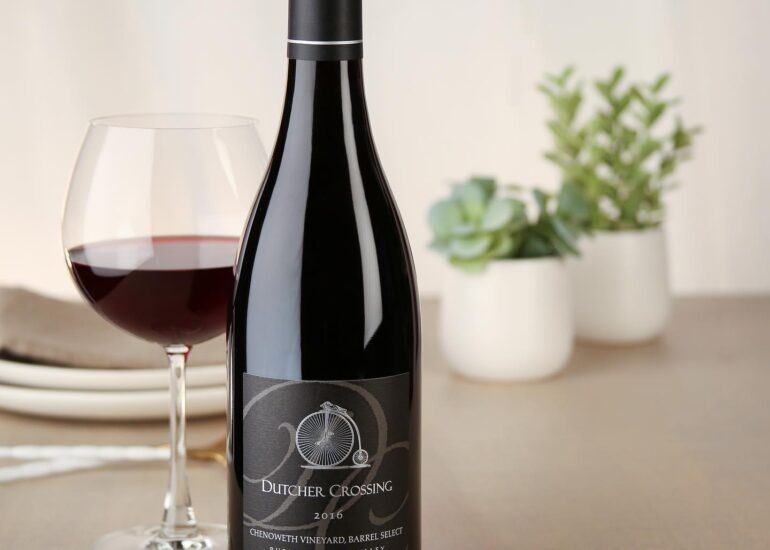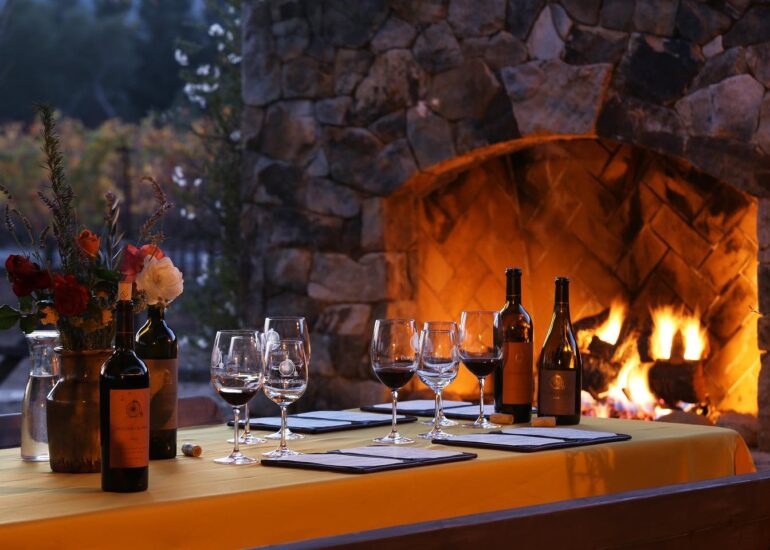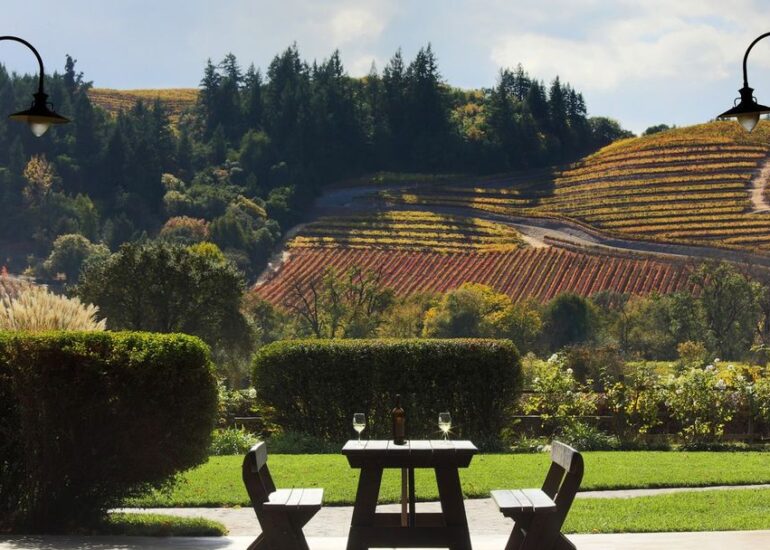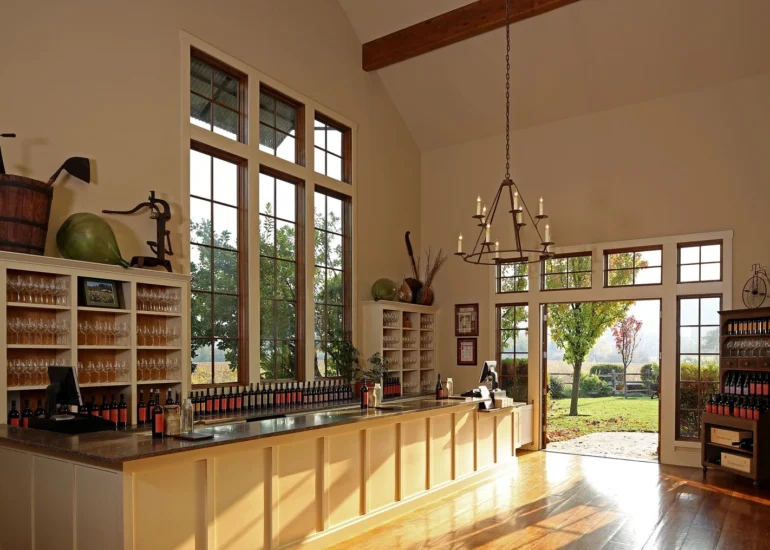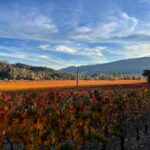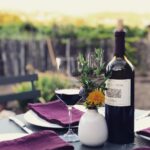Duke & Duchess of Dutcher
Winemaker Interview
Duke & Duchess of Dutcher
A conversation with Kerry Damskey and Debra Mathy of Sonoma's Dutcher Crossing Winery
Dry Creek Valley Estate Makes a Name for Itself with Small Handcrafted Lots
An Interview with the Proprietor and Winemaker of Dutcher Crossing Winery
When you step foot on it, you know you are home.” With these simple words Debra Mathy, proprietor of Sonoma’s Dutcher Crossing Winery, describes not only the experience she seeks for visitors to her Dry Creek Valley estate but also the very essence of her role in the wine industry: warmth and hospitality. Together with her talented and accomplished consulting winemaker, Kerry Damskey, Mathy aims to provide in a comfortable and inviting ambiance a truly unique and handcrafted taste of the region’s fruit. I sat down with the two to discuss the vision and mission of her recently purchased winery, the focus and direction of his winemaking style, and their collective commitment to expressing the local terroir.
A relative newcomer on the Northern California landscape, Dutcher Crossing was founded in 2001 with Kerry Damskey at the helm of its winemaking. With his meticulous and attentive manner, he creates wines that balance an articulation of the winery’s unique message with a sense of fidelity for that which makes Dry Creek Valley an appellation in its own rite. Utilizing years of experience in elevating winegrapes to their most exalted manifestation, Damskey employs a keen sense of place in finding vineyards that best showcase the individual varietals consistent with the founders’ vision. Upon her purchase of the winery in 2007, Debra Mathy, true to her personal policy of inclusiveness and comraderie, immediately embraced his expertise, setting the tone for a business relationship as harmonious as the wines crafted under Dutcher Crossing label.
— Nikitas Magel
Following are edited excerpts from the interview. At the bottom of this post is the full recording.
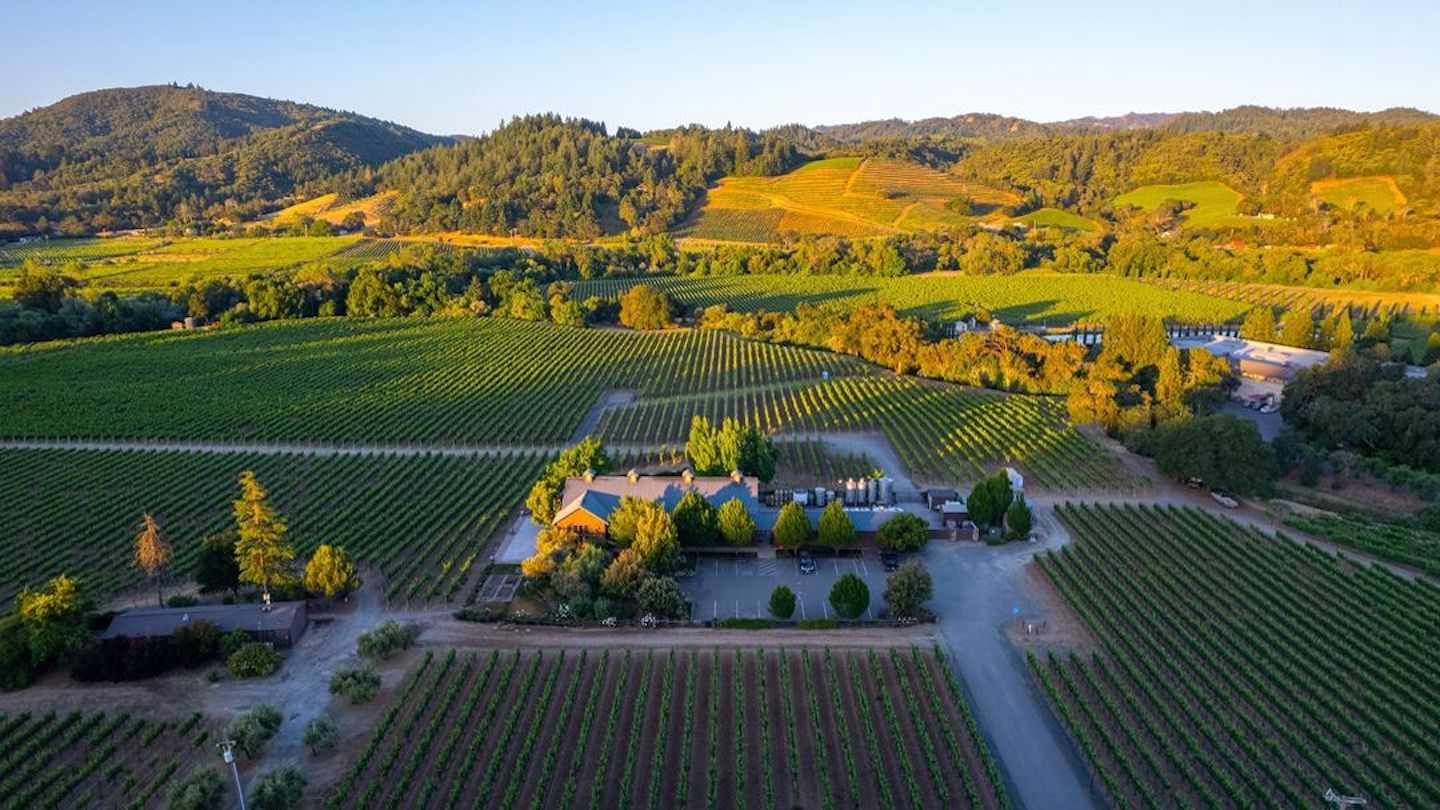
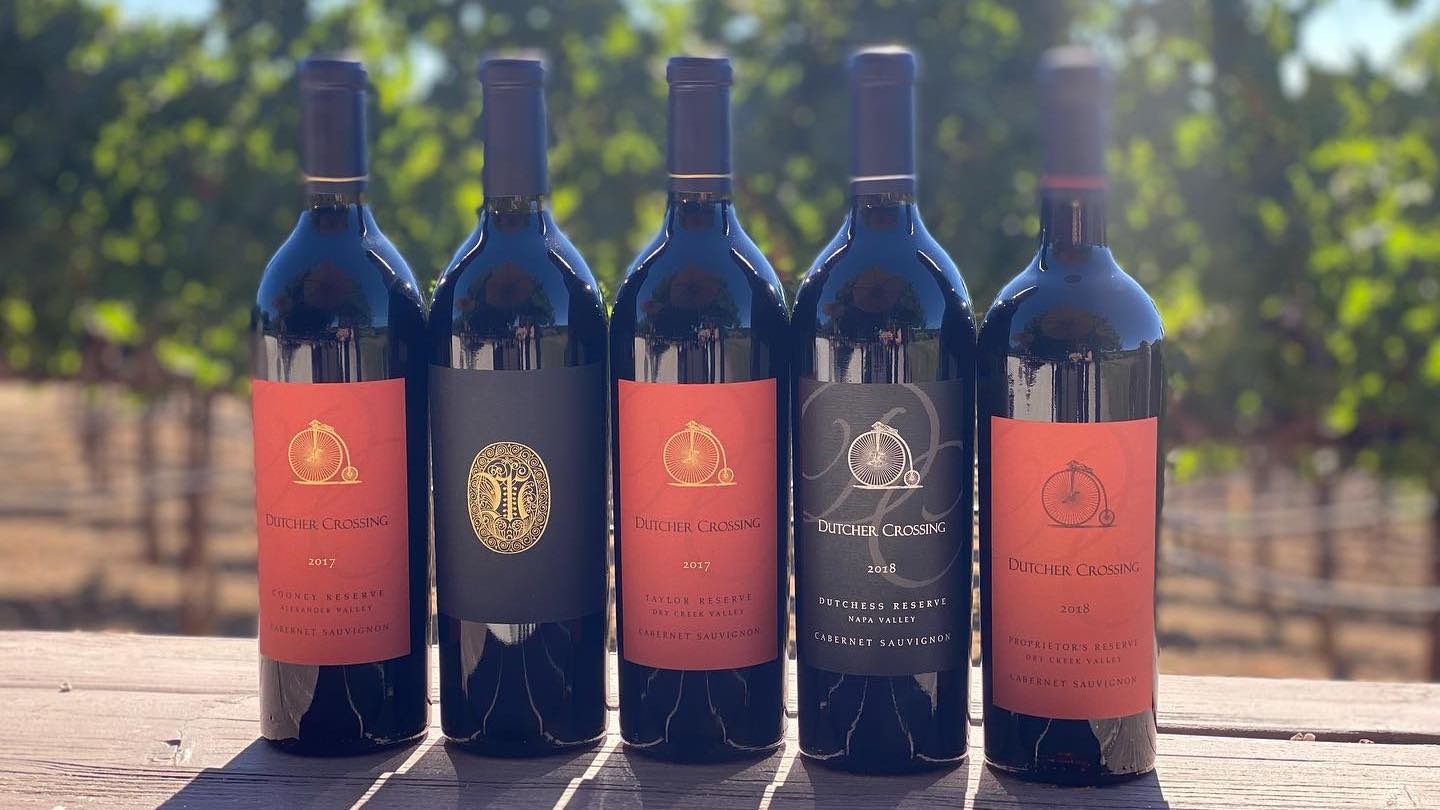
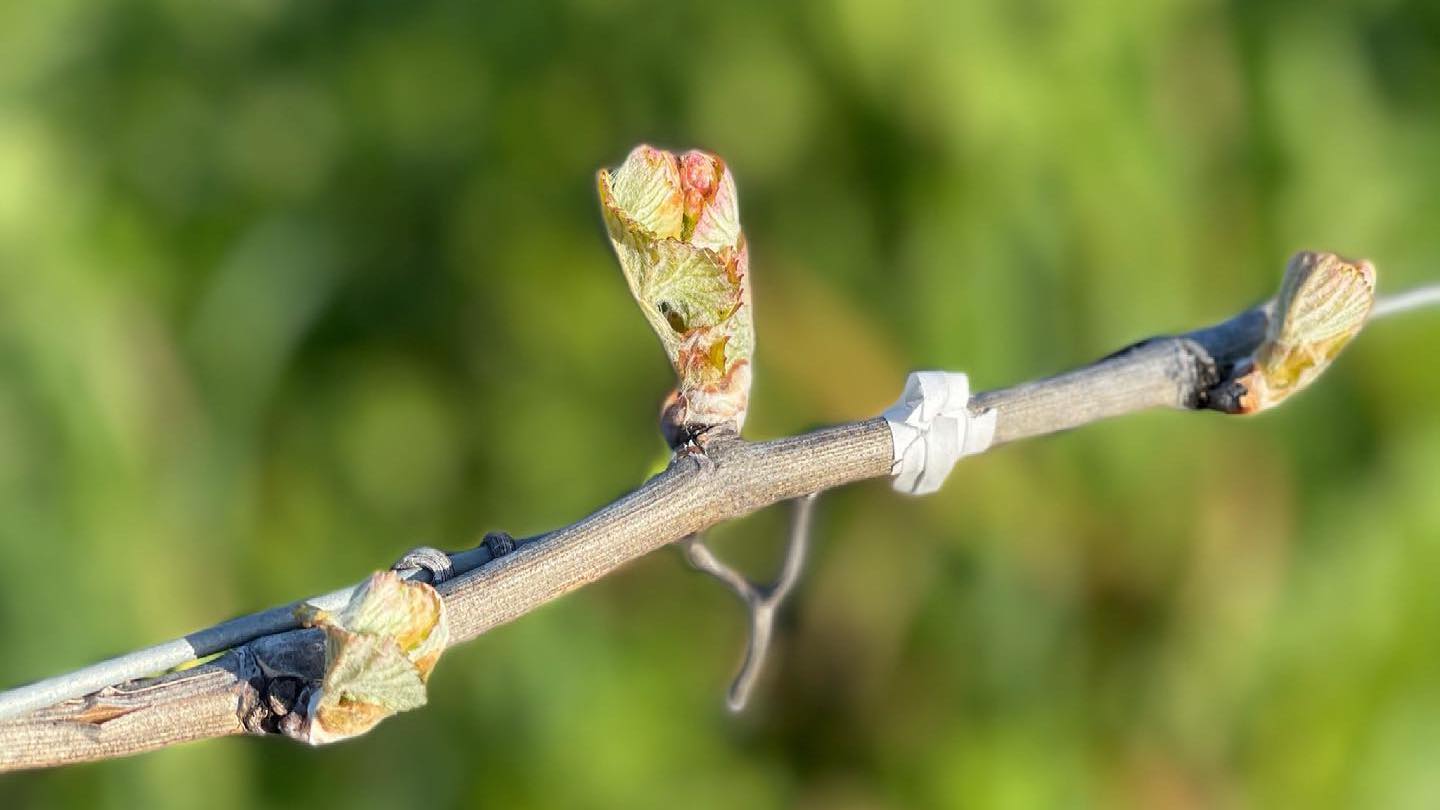
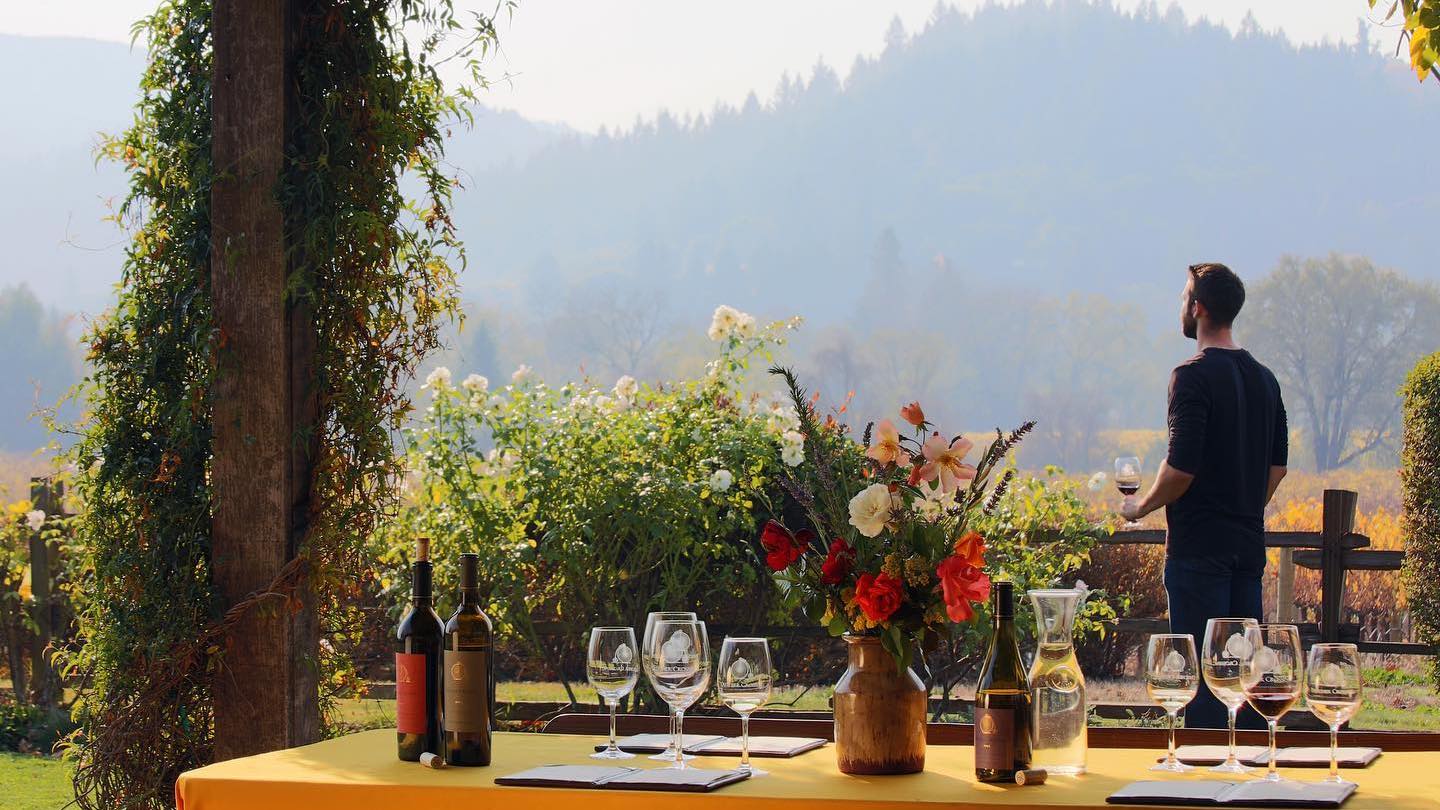
Handling the Handmade
NM: If you were to distill the Dutcher Crossing philosophy into a phrase or two, what would that be? And how are you different from your neighbors and peers?
DM: Honestly, we have a very well-balanced three-legged stool: a beautiful site, a great family of people, and great wines. So, we have a complete package that not everybody else in the industry has the pleasure of having.
KD: It’s also unique that [our wines] aren’t really readily available. We’re in a few restaurants, where we should be, but mostly you need to come here to get the wines. We don’t utilize, in a big way, the three-tiered system. My job has been to find these vineyards, make unique wines from them, and create a really pleasurable experience for people — but they need to come here.
NM: Now why is that? Might that be limiting the marketing and reach of the Dutcher Crossing brand? And if not, why not?
DM: We’ve intentionally limited it out of necessity: we have not had the supply to meet the demands of the three-tiered system. We have the capability of selling out through our wine-club and direct-to-consumer. So, with demand we control the destiny of our brand. In a perfect world, just business-wise, if we don’t have to give up the bottom line, it’s better for us financially. Do the Mathys or Kerry need to be known in every city of the country? No. That’s not why we do what we do. As we grow, we may venture into other markets. But [right now], we don’t have the supply to meet that demand. And that is the sole reason that we do this.
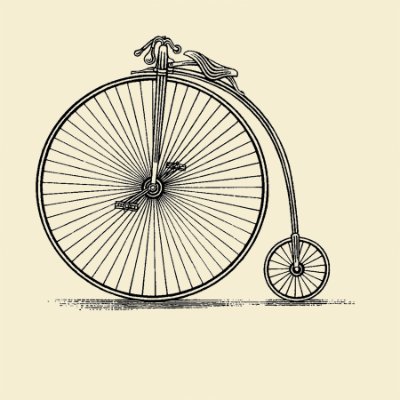
KD: Getting big is not necessarily the end-all in terms of it being great. With Debra, and even with the founding partners, the goal was really to be [small]. We’re at 8,000 cases now, with maybe a little growth. A smaller company is much easier to manage. In my past life, before I became who am I now as a consulting winemaker, I worked for big corporate firms. And that’s fine, but that’s not where I wanna go now. I’ve done that.
NM: What is it about the experience of working at a small — let’s call it a boutique — winery that you find rewarding at this point and believe is fundamentally different from working at a much larger winery?
KD: The wines are handmade. I can’t overemphasize that. We have done very small lots of 100 cases. They’re really handmade. And I think there’s a flavor to handmade wines, a uniqueness.
DM: You can really taste, more so than with mass-produced wines, the vintage and the terroir. You simply can’t get that with large corporations.
KD: Let’s take, for example, the three Zinfandels we do. One is the Maple Vineyard; the Maples are very well respected Dry Creek Valley growers. Then we actually do a block of Maple, called Bill’s Block — we became very close to the Maples and they like what we’re doing — and that block is entirely different than the regular Maple [vineyard wine] that we do. And then I found another vineyard off Canyon Road up here, and it’s farmed by a guy named Paul Bernier who farms organically. Now, one of my favorite Zinfandels is Ridge’s Lytton Springs, because while it is Zinfandel, it has other stuff in it too. So, I got interested in doing a different Zinfandel, and that’s what this Bernier site is: Zinfandel, Carignan, and Mourvedre. And it’s wonderful. But again, these make for about 150 cases! In a bigger winery, these wines would get lost; they don’t get lost here.
The Lay of the Land
NM: So it sounds like you’re working with a number of grape growers. How much fruit are you sourcing versus raising on the estate?
DM: Technically, we don’t do an estate bottling. We’re in transition of the vineyards coming back into production. It used to be 100% Cabernet, but now we’re going through a replant phase. Right now, some of our Cabernet is our own, some of our Zinfandel is our own, the Syrah and the Petite Syrah come from our vineyard. Kerry’s and the winery’s ultimate goal is to make the best wine possible. So, if our Syrah needs 5% or 10% from an outside Syrah vineyard, in order to make it the best wine (the Proprietor’s Reserve), Kerry has the green light. He’s not going compromise the wine just so that we can have it estate-bottled.
NM: You say the vineyards are currently in transition. Can you say a little more about that? Was it a marketing choice, or was it something that you felt was necessary, perhaps because of new information you might gathered about the soil?
DM: Basically, both. Kerry was here during the transition into a winery. It used to be 100% Cabernet, but the founders of the winery wanted to be able to say they had other varietals like Syrah and Zinfandel, regardless if it was technically estate fruit.
KD: The vineyard was 31 years old. It was all AXR. And maybe 10% of the vines were dead.
DM: We ripped out the last of the old vines after this past harvest. So, Kerry’s and my choice together is focused on what we want to bring into the winery for production. And Kerry is fan of Chardonnay, so we’re planting specifically to make my winemaker happy, as well as our customers and wineclub. Then we’re actually doing our own Chateauneuf [du-Pape] style of wine up here, so we are specifically planting for our program now.

KD: It’s a good area. We have a nice benchland. We don’t have the [large, flat] stones that Chateauneuf has, but of the thirteen varieties, we’ll probably have four: Grenache, Mourvedre, Syrah, Cinsault, and maybe a little Counoise.
DM: Kerry’s been here since the winery was conceived, but when my family and I came in and bought it, it was important for us to have his input. That’s a little bit different than some wineries do, but we wanted to have something very different. So, when he said he wanted to do this style of wine, I said, “Absolutely, I’m 100% behind it.” So, we worked with the vineyard management crew, and Kerry and they put their heads together to talk about rootstock and clones.
KD: Let me give you the big picture, how we started with the founding partners. Deb has evolved that. We originally looked at doing two things. First — because I’d been in Sonoma county for a number of years, made wine for a number of people, and have a very good handle on a different vineyards throughout the county — the founding partners asked me to find a handful of very special vineyard sites to do single-vineyard wines with. From that, a couple of Chardonnays, a couple of Zinfandels, a couple of Sauvignon Blancs — we’re wanting to be true to what we are in Dry Creek, but also looking for unique sites and making them unique in the bottle. I’m about transforming site into flavor; I think I have a knack for doing that. So, we do all that with single-vineyard sites in Dry Creek, Alexander Valley, and then a little bit further with a mountain Cabernet vineyard in Sonoma Valley up at 1800 feet, called Mount Terraces. Secondly, our Proprietor’s Reserve is a concept where we utilize more of our estate vineyards, where the sum of the individual varieties is more interesting than any single one. These tend to be blended wines, and that’s, for the most part, where we’re looking to use our estate fruit.
NM: What do you find most rewarding about the Dry Creek region and its terroir, and what are some of the challenges you face?
KD: Great question! Historically, if you look Dry Creek and what it has been known for, you’ll find that it’s Zinfandel. And great Sauvignon Blanc. Added to that, of course, are Rhone varieties in the last 10-15 years. Dry Creek was known to produce a lot of mixed [field] blends. And that gets to the root of how Sonoma has been different from Napa: Sonoma County was built by farmers, whereas Napa, generally, has been built by people, entrepreneurs, who have been successful in other walks of life. So, it’s a very different approach — both good — but different. Now, one of the challenges for me was to come to Dry Creek and make great Cabernet. I, personally, did not love Cabernet from Dry Creek; I’m making a broad generalization, but I tend to find it a little bit lean, a little bit weedy. So, we created a unique blend of Cabernet with Syrah. We’ve been getting very good scores on it. We call it Cabernet, but we’re very honest about the fact that we blend Syrah into it. And we make two of them, one of which is the Taylor Reserve, a hillside Cabernet where[in] we add varying amounts of Syrah. Without losing the signature of Cabernet, it adds voluptuousness, it adds darkness, and it adds interest. It’s still Cabernet — it’s still legally Cabernet — but Syrah, I think, makes it a better Cabernet. So that’s been a personal challenge for me. Now, I’m not suggesting that people should agree with me, but [that blend] has worked for us here. And then our Proprietor’s Reserve Cabernet is a blend, too, but priced a little bit lower.

NM: You mentioned that some of the wines have gotten particularly good scores. What is your take on that entire facet of the wine industry — not only scoring and reviewing of wines in the media, but corollary to that, the making of wine so as to earn high accolades?
KD: Well, I don’t do the latter. I mean, not intentionally. I’m being very honest when I say that I think I have ability to make wine that tastes good and that people will enjoy. Though there’s probably a correlation there also, with scores. But we don’t make wines for scores; we make wines that generally taste good and have broad appeal. Yet the purpose itself is not to have that broad appeal. The purpose is that they be reflective of the site on the label or that they’re unique… and taste good! We spend a lot of time making sure wines taste good!
DM: Yeah, that’s our top priority, to make the best-tasting wines that we can. Rarely do we submit a wine to be scored.
KD: Now, if we happen to get a good score, that’s great! Plus, I think scoring is valuable. We Americans look to secondary and tertiary guidance for what’s good. So, it’s clearly valuable.
Consulting and Collaborating
NM: Focusing on the two of you, how would you describe your working relationship? How do you two work together in sourcing the grapes and overseeing the vineyards, and then ultimately making the in cellar that which you envision for Dutcher Crossing?
DM: Kerry controls most, if not all, of it. We put our heads together when a site is found, in order to figure out if it works into our business plan. We come together with the final blending and polishing. I have my input because I’m on the front line and hear what the consumers enjoy and get feedback of what’s liked and disliked, and that’s helpful for Kerry. But Kerry’s here for a reason: he can do the job and we have 100% faith in him; he makes all the calls. I mean, there are a few times when we come together, but he controls the wine.
KD: In the big sense, we like each other. We like working with each other — and that’s huge — in terms of just wanting it to work and being inclusive. In any business relationship, that’s so powerful! Deb and I like working with each other a lot; it’s a very healthy relationship. So, that’s really important in terms of always wanting to do your best and create something constantly special.
DM: He’s very patient. Some winemakers may get irritated by a hands-on owner or someone in his shadow — Kerry has no problem with that.

KD: We always blend together!
DM: And it’s fun. That, actually, is the fun part of the job, because not all aspects are.
KD: I certainly have the big picture in terms of what I think the wine should taste like, but rarely, if ever, do I just say, “Boom! This is the way it’s going be!” I’m very inclusive; I’ll create all these different trials, and then together we finalize where it should be. We do that with every wine.
DM: That’s the fun part, because you’re actually learning as you go. And Kerry gets feedback from Dan [the assistant winemaker] and I about how the wine is being perceived. He hears about the blends from us; that’s part of our job.
KD: And I’m probably the most critical. We had a wine from the ’05 vintage, a Cabernet: it was a cool vintage, it was a big crop, and it just seemed a little weedy — I really don’t like weedy wines; I like wines to be voluptuous. If I taste something incorrect, I’ll make sure we fix it.
The Analytic Artisan
NM: Would you call yourself a perfectionist?
KD: That’s a broad term. I certainly don’t work by recipes, but I would call myself a scientist. My training is very scientific; I’m always utilizing the numbers and analyses — that allows us to take risks and make interesting wines. And I’m always, always willing to take risks with wines, because I think that makes better wines.
NM: So you describe yourself as a scientist. But I’m also hearing from you that you’re very much an artisan. How do you harmonize those two?
KD: Time! You get older! I mean, that’s what it really is. I was fresh when I got out of [University of California,] Davis — boy, I thought, ‘This is the way it is! It’s by the book!’ But as I matured and was around other mentors — I was the student for many years; now I’m the teacher — I learned the whole concept of risk-reward. And that’s important in life. For example, we do a lot of native yeast ferments — a lot! And that brings lots of risk! When you do native yeast ferments, they usually don’t just ferment dry; they slow down. But you have to ask if there’s anything else going on [that might be slowing down the fermentation]. Ultimately, you conquer it, but not after taking that huge risk. But there’s a reward: when you compare wines that are fermented with cultured versus native yeast, the wine made with native yeast are almost always more interesting.

NM: Now, wouldn’t you say that that’s a school of thought, and that there are some people in the business who might disagree with you — or, in the very least, if they do agree, don’t feel it’s worth the risk?
KD: Oh, a lot of people! Now let me qualify that: it has to do with the variety. With Riesling, I don’t think I’d do a native yeast. With Chenin Blanc, I’m not sure I would do it, either. With certain fruit-driven varieties, I think I would always use a cultured yeast. But yes: there are so many winemakers that just don’t want to take the risk. And a lot of times it’s because would have so many lots of wine that they’d have to watch; they don’t have the staff! If you’re going to use cultured yeast, you have to have the staff to watch the ferments.
[In an effort to illustrate wines bearing this style, two of the Dutcher Crossing Chardonnays were poured, both of which were fermented with native yeast: the 2007 Saralee Vineyard Chardonnay (Russian River Valley) and the 2007 Stuhlmuller Vineyard Chardonnay (Alexander Valley). Though decidedly different in flavor profile, it was apparent that both wines shared the same tactful hand in their crafting, one that no doubt seeks to emphasize the more delicate and nuanced aspects of the fruit.]
KD: The first wine is from the Saralee Vineyard is in the Russian River Valley, close to Forestville. This is a cool-climate Chardonnay. The second wine is from the Stuhlmuller Vineyard — a vineyard I’ve worked with for 15+ years — in Alexander Valley, but southern, in a very cool part of the valley that butts up against Russian River and Chalk Hill appellations. So, it gets quite a bit of cooling influence from the Catati and Bodega Bay, although not as much as Russian River, and it’s grown on a very deep gravel bed, which I believe flavors it. So it still has the power of Alexander Valley, but it’s not a warm-climate vineyard; it’s fairly cool, considering it’s Alexander Valley. But it is warmer than Russian River Valley. These are both barrel-fermented with native yeast and native 100% ML, so one would think you’d get an over-the-top, oaky-style of wine, but I don’t think they are. What I get, oftentimes when I ferment Chardonnay on native yeast, is a sort of nuttiness with a slight matchstick quality. It’s not sulfide, but it’s a permutation of it. And yet there’s a lot of oily fruit there, also. So, native yeasts ferments, versus cultured yeasts, give you this layered effect in the aromas and flavors.
NM: These two wines definitely exemplify a particular style that’s uncommon even among handcrafted, cooler climate Sonoma Chardonnays. How much of that would you say is reflective of how you personally think about the grape variety?
KD: I really love Chardonnay! The goal is really to create layers of complexity. I think you can tell the wines that I make. There’s a similar mouthfeel and overall approach to my winemaking. I purposely try not to make an over-the-top style.

A Style of Subtlety
NM: Can you articulate what that means for you? How would you personally define a wine that’s ‘over-the-top’ versus one that’s unobtrusive, perhaps elegant?
KD: First off, let’s assume that you have very good fruit that can handle a lot of oak and can handle a lot of maturity. Taking the Saralee Vineyard as an example, that would mean picking the fruit even riper and doubling the oak. Then it would become heavier, more viscous, more of a ‘statement’ wine. You’d turn the volume up. Now, we could do that and I think it would make a good wine, but I don’t think that’s really what we want to do here.
DM: Yeah, that doesn’t work with our philosophy and our concept. The best thing was, when I tasted his wines before I ever met Kerry, I thought, “From top to bottom, these are all really good wines; there’s not a bad one in the bunch.” There wasn’t a single one that was radically different in the bunch. And we hear from people time in and time out, “All your wines are really good” and they just walk away feeling, “Wow, we had some quality wines.” If we went big and over-the-top with any of them, it would stand out and throw off all the other wines.
NM: So, a more florid or exaggerated style is not consistent with your philosophy. In your own words, what is that philosophy?
DM: My philosophy — how I perceive Kerry’s wines is that they’re bold, they’re food friendly, they’re approachable, and they’re wines that you can cellar but are still drinkable now. It’s great that people can age them — and our Cabernets are worthy of aging — but we don’t want people to save these wines [entirely]. We want them to enjoy them. And they’re not made for a single kind of customer; we have visitors from all over the world who enjoy this approachable, well-made wine.
[Perfectly exemplifying the Dutcher Crossing dedication to the making of elegant wines is the Maple Vineyard Zinfandel. Upon tasting this wine, I found it to be surprisingly refreshing. With oceans of heavy and overbearing Zinfandel on the market, the appeal of one that’s bright in acidity, nuanced in expression, and clean in finish simply can’t be overstated. Equally unexpected was the wine’s eventual prompting of a discussion on Brettanomyces.]
DM: The Maple Zinfandel is one of the vineyard designates in our program. Tom and Tina Maple bought the vineyard about 25 years ago down on Dry Creek Road. They have their set philosophy of dry-farming (no irrigation), all head-trained vines, and these vines are their babies! As growers, they believe in their grapes and they believe in the wineries that use their grapes. They actually interviewed winemakers and winery owners [initially, as potential buyers for their grapes] — instead of the other way around — just to make sure we’re worthy of having their grapes.
KD: Yes, I went through an interview!… because I didn’t know them prior to that.
DM: There are five of us [wineries], really, that have their grapes and we’re all very different in style. But you can still taste the vineyard across each of the different styles. There are people who come up here and go from winery to winery just for Maple [vineyard-sourced] Zinfandel. It’s one of the better recognized vineyards in Dry Creek. It’s beautiful; they manicure their vines meticulously.

Values in Vinifying
NM: I think we’ll agree that everything starts with the grapes themselves. Really what you’re doing in the winery is acting as a medium for those grapes, by taking their message and bringing it out into the world, the bottle, the glass. Beginning with the grapes, things can only go downhill because the highest potential for a great wine is already inside those grapes; the question becomes whether a winemaker can fully manifest that potential. It makes sense, then, that these growers have deep concern: they want to ensure that the winemaker who ultimately gets their fruit is able to fulfill the promise inherent in the fruit that’s grown to such high standards.
DM: The Maples are also finicky on their style. They have their opinion on all the wineries’ styles. They have their opinion on oak and alcohol and…
KD: Brett! No Brett! When I was interviewed, we talked about winemaking choices. Tom Maple asked me, “What’s your feeling on Brettanomyces?” I told him that Brettanomyces, in small amounts, in some wines can be a positive thing. But there are certain varieties that I don’t believe it works with at all. And one of those is Zinfandel. He immediately said, “That’s the right answer! That’s what I wanted to hear!” {laughter}
NM: Tell me a little bit about more that. It seems to me that Brettanomyces in New World wines is shunned across the board, whereas in some Old World styles of wine it’s appreciated, almost revered. Can you elaborate on your position with regard to Brett and speculate as to why there are different opinions on it across the wine world, and even just here in California?
KD: Brett is a spoilage yeast. In very broad terms, if you have a fruit-driven wine like Zinfandel, the characteristics of Brettanomyces (leather, wet horse) simply don’t work with that style. But you can have a little of that in Cabernet — you don’t want Cabernet to be purely fruit-driven; a fruit-driven Cabernet is not going to be very good. Cabernet should have aged characteristics. Syrah, too, tastes better when it has some age on it. So, a little bit of that unique, earthy, organic quality in small amounts in those wines is complexing. But it’s conflicting in fruit-driven wines. Another example is Pinot Noir, at least California Pinot Noir, where I just don’t think Brett works at all.
NM: I was alluding to a palate affinity among a great deal of drinkers of Burgundy, wherein you often do find pronounced evidence of Brettanomyces. That begs the question: has Brett been appreciated in some styles of Old World wine because it’s been there all along and is assumed to be an integral and necessary characteristic of those styles, or is the Brett simply a remnant of unhygienic winemaking and therefore a flaw that should be corrected?
KD: I have a pretty strong opinion on that. I get slammed by my peers, but I don’t have an appreciation for old white Burgundy. I don’t like old white wine, yet there’s an entire group out there in the world who does. And, quite honestly, I don’t have an appreciation for old Champagne, either. I do not like oxydized white wine! So, I tend to be more New World in nature. I appreciate freshness. And though I’m not looking for New World wines to be only fresh, I appreciate freshness and I think Brettanomyces steals freshness from wine. Now, as a caveat, I like using native yeast, and native yeast fermentation also steals freshness from wine. But, it’s about yin and yang: native yeast gives something back to the wine. So, I don’t want to oversimplify by stating that good wines should just be fresh.

NM: Speaking of freshness, there’s quite a bit in the Maple Zinfandel. There’s also a good deal of restraint in its fruit profile, in that it’s not overblown or exaggerated — qualities we often find in a lot of other Zinfandel, even at this super-premium level of quality. This particular wine, I would say without a doubt, is one that can be easily enjoyed with food.
KD: It gets back to the approach we’re taking to make elegant wines. The Maple Vineyard itself has a fairly low pH and high acidity. The wine, for course, finishes with ML, but it has a fairly high natural acidity. So, understanding that component of the wine gives it an elegance without being overblown in the first place. But it wouldn’t be my style anyway to make a port-like [table] wine. I just wouldn’t do it. Now, there’s a lot of good Zinfandels made like that and I’ll drink them! I don’t mind them. But I don’t think I’d make one [in that style].
DM: I think that there’s a lot of imbalanced wines in the marketplace. Is that consumer-driven? I don’t know. I don’t really drink Zin unless it’s ours, just because I’m confident of what can be matched with it [foodwise].
[In illustration of a decidedly different but equally lean and well-balanced wine based on the same varietal, the Bernier-Sibary 2007 Zinfandel was poured.]
KD: The fruit for this wine comes from the Bernier vineyard, which is across from Pedroncelli, up on a hillside. So, it’s on the southside of Canyon Road. I don’t think it’s dry farmed; I think he has it on drip irrigation. But it’s organically farmed. The grapes I co-ferment — everything goes into one big pot. We’re tasting this because it’s a different wine from the Maple. It’s a big wine, but it has a leanness from the Carignan. It might be about 5% or 8% Carignan, along with some Mourvedre and Petite Syrah. We actually decided to bottle it unfiltered.
The Damskey Technique
NM: Tell me more about that: what are your feelings about filtering wines? How about with some other debatable winemaking practices: fining, pump-overs, punchdowns? Do you employ any usual techniques?
KD: I generally don’t fine. It’s not that I have anything against fining but because of the way we handle the fruit, it’s generally not necessary. If you’re fining, you’re more than likely taking something out that got in there because of winemaking — tannin or color. With our Chardonnays we whole-cluster press everything, all of our fruit. And when you do that, you just don’t get a lot of phenolics in your white wines. With our reds, everything we make is with punch-down [fermenters], and punching down gives you tannins but doesn’t give you drying tannins. Basically, across the board, almost every wine I make everywhere, is punched down. And we don’t pump our must. The grapes are dumped into our tanks and then when we drain, we pump the juice, but our pumice itself never gets pumped. So, it’s pretty gentle. Consequently, we never have to fine. I don’t think I’ve ever fined a Dutcher Crossing wine.
So, then the next ‘Damskey technique’ that not many [other winemakers] do is that once I feel that a red wine has enough mouth substance — and it may not yet be dry, close to dry, but not entirely — I may stop punching down and then I turn the heat on. And this is critical! We then put the top on the tank, heat it up to about 90º, and we just let it cook. We don’t touch it all, but just taste it, day by day. And most of the time, it’s another 10 to 14 days just sitting there. It just sits there. What happens is that the [phenolic] chains get longer and longer, which gives it a mouthfeel without getting tannin. If you were to punch it down at the same time, you’d get [too much] tannin.

KD: Now, filtration versus non-filtration. We haven’t really talked about doing whites unfiltered. With those there’s much more risk: if you bottle a white wine unfiltered, it’s probably going to be cloudy, or in the very least not brilliant[ly clear]. You have to be able to accept that. Whether or not our customers are ready for that, is the question. I don’t have any problem with it, but that’s a marketing question. Now, with respect to reds (and even still with whites), whether or not to filter is entirely a scientific, microbiological question. If you’ve not finished ML, you have to filter. If you still have any [residual] sugar in your wine, even the smallest amount, you have to filter. Because otherwise there’s a likelihood, statistically speaking, that the wine could re-ferment. For our reds, the issue hinges entirely on microbiological concerns. We lab-test for [bacteria that might be in the wine]. And from there it comes down into experience: we look at what’s there, what’s growing, what could support growth. This is another very true example of risk-reward. Because what’s growing in a petri dish is like being in a womb; it has nutrients, it’s warm — that doesn’t mean the same bacteria is going to grow in a hostile environment of 15% alcohol and SO2.
NM: Okay, so you’ve explained the scientific basis justifying your decisions not to filter. But given the option, to you, what is the artisanal incentive in favor of not filtering?
KD: I nominate a wine to be unfiltered if we want it to be maybe a little chunkier. Usually when you take a wine to bottle unfiltered, it will take on its life a bit of an earthy character, versus if it were
bright. I’m not sure what, kinetically, is going on. In that case, it’s likely not microbiological. But there’s just something kinetically, where the wines take on a more earthy character. So, now that I’ve said that, and knowing that our Proprietor’s Reserve Zinfandel is a blend of different varieties, I think it’s a good wine to take that risk [of not filtering] with; a bit of that organic substrate might be interesting!Customers of the Crossing
NM: I’ve heard quite a bit on the Damskey Technique, what I’ll call the ‘Mathy Hospitality,’ and the synergy between you in expressing the uniqueness of Dry Creek Valley in the wines that you craft. In closing, whom do you see most likely to truly appreciate these wines? How would you describe the customer who responds best to your overall approach?
DM: We hit big with people who like to explore different areas in new wines. Most days, customers will see me here [in and around the tasting room], and then Kerry often walks in. So they have a better understanding of our wines, because we get to be hands-on and get into their ears and minds. We have really outgoing, adventurous consumers that like to explore. We get emails from them that say things like, “I tried the Maple Zin with this, this, and this. You really need to tell our fellow [wine] club members that it goes great with this!” They want to be a part of it, they want to be part of having other people enjoy our wines. To be honest with you, Kerry and I get the fun part of talking with people, and find that all our consumers tend to be ambassadors for us. They want to be spokesmen and turn people onto our wines, and have them experience and be adventurous with them as well. We don’t get shy customers or people who tend to be new around wine. As a whole, typically our demographic has been in the 42-60 year old range, a lot of which has been a carryover from the older ownership. Now, with the growth in our wine club, the demographic there is in the 25-32 year old range. We hear people saying, “We want something that no one else has; we want to be the first to discover that.” The younger generation is less safe.
Young or old, seasoned or not, the wines of Dutcher Crossing offer a unique opportunity for the wine drinker seeking to taste the Dry Creek Valley experience. To learn more about these wines and how to get them, visit Dutcher Crossing Winery online.
Interview by Nikitas Magel
Photos by Dutcher Crossing Winery

Comments are closed.

